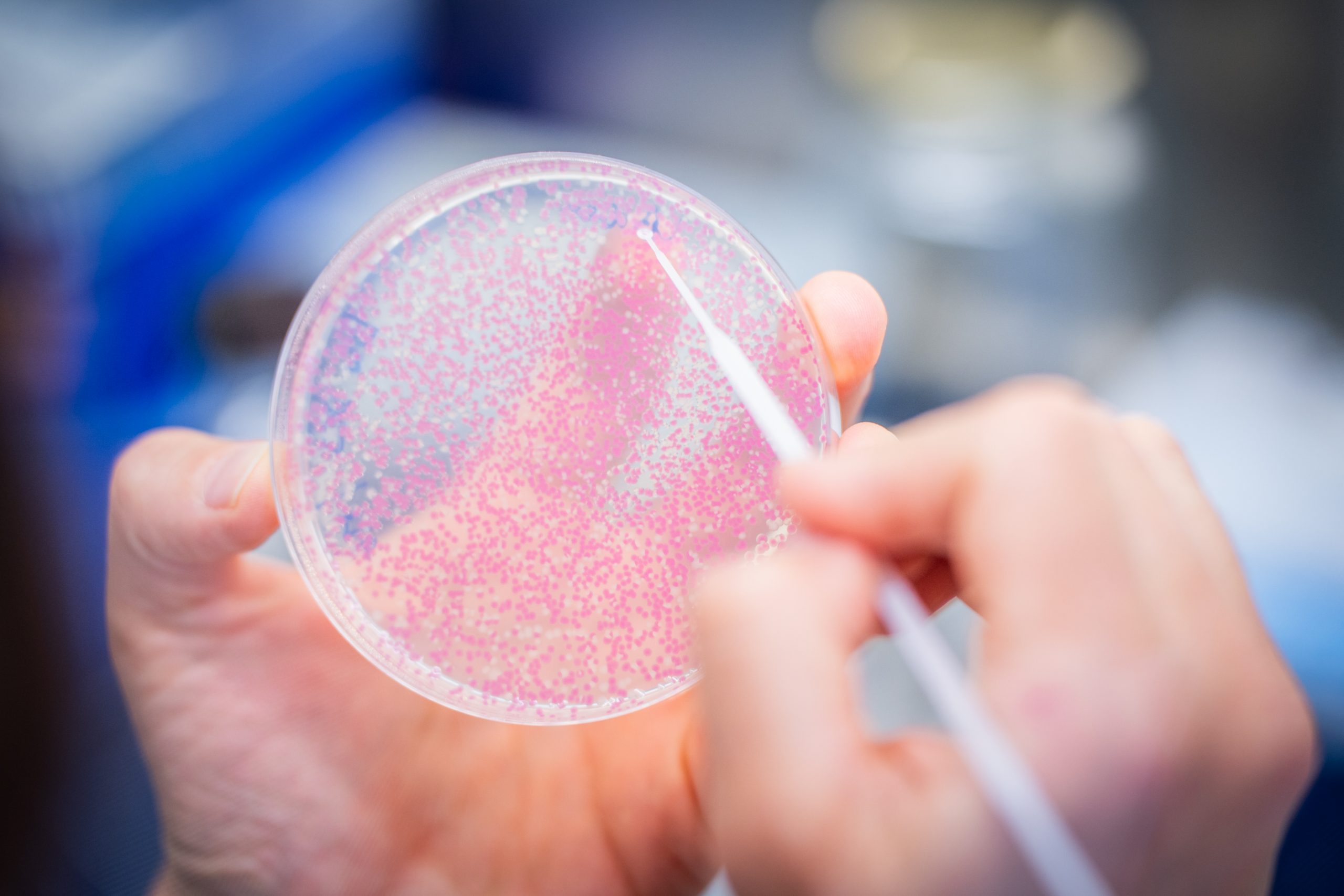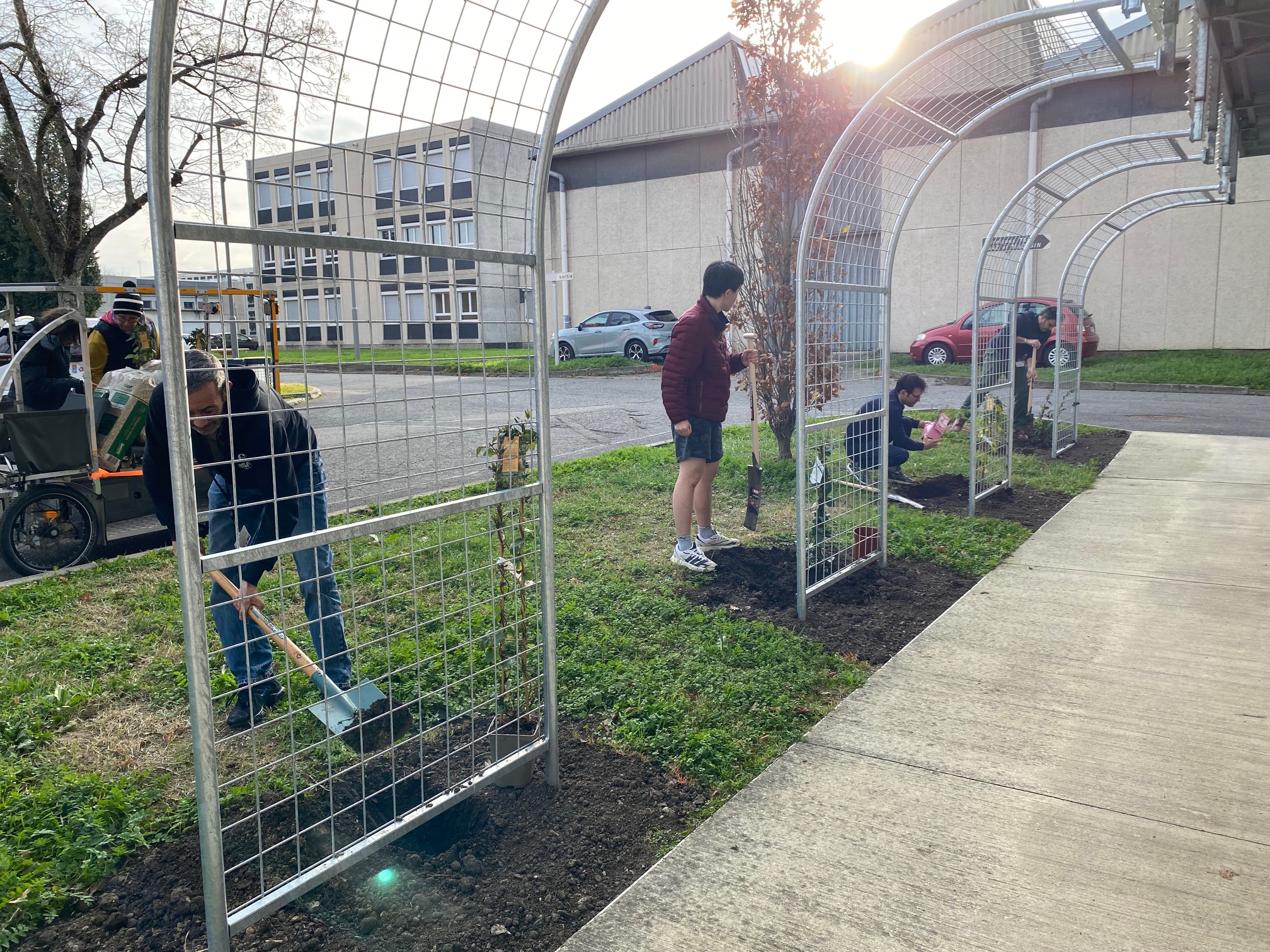Topic "Creating efficient microorganisms"
A few words
Creating efficient microorganisms

Ongoing projects
Project METHYLO
In this project, we aim to replace food-competing feedstocks used in industrial biotechnology with methanol, fostering a circular and sustainable bioeconomy. Methanol presents a compelling alternative as a renewable carbon source since it can be synthesized from CO2, contributing to efforts in mitigating climate change. Our work seeks to reprogram the metabolic architecture of Escherichia coli to enable the assimilation of methanol as a primary carbon source. Given the inherent challenges of incorporating a non-native metabolic pathway, we propose a dual-strategy approach to overcome these obstacles based on (i) constructing a semi-synthetic regulon that can specifically respond to methanol, integrating its assimilation into the natural transcriptional networks of E. coli. This strategy will allow the bacterium to regulate methanol metabolism in concert with its existing cellular processes; and (ii) enhancing the catalytic efficiency of methanol-based metabolic pathways by spatially organizing key enzymes and substrates within bacterial microcompartments. These specialized structures will concentrate the necessary biochemical components, optimizing reaction rates and overall metabolic performance.
Project COBIOMACE
In collaboration with SYMBIOSE team, the goal of this project is to produce biomolecules from CO2 via acetate using a two-stage microbial system. In the first stage, the CO2 is converted to acetate by anaerobic microbial consortia communities under controlled conditions in bioreactors. In the second stage, this acetate is used as carbon source by metabolically engineered E. coli to produce various biomolecules of industrial interest. By coupling these two stages, we aim to develop a sustainable biotechnological process using microorganisms as cell factory for upgrading renewable carbon resources into bioproducts.
Project LIPIDS
We engineer the oleaginous yeast Y. lipolytica to produce unusual microbial lipids. We combine enzymatic (in collaboration with CIMES team) and metabolic engineering to tailor its fatty acid composition towards compounds of interest. Our investigations have also led us to develop some innovant genetic tools to facilitate the engineering of this non-conventional yeast.
Project MELANGE
This France-India project aims at developing mixed-culture cohort of engineered microbes for the production of glycosylated flavonoids. This process involves metabolically expensive biosynthetic pathways that affect microbial cell fitness alongside sub-optimal bioconversion. Here we address the problem by dissecting the pathway into four components each performed by specialist microbial cells.
Project Optisfuel
En collaboration avec l’équipe PHYGE et la plateforme GeT-Biopuces, nous modifions la bactérie lithoautotrophe C. necator pour produire des hydrocarbures (alcanes et alcènes) afin de fabriquer des carburants à partir de CO2 comme unique source de carbone. L’ingénierie métabolique et l’analyse des sous-populations sont combinées pour développer des souches modifiées robustes.
Project BioFaced
In collaboration with PHYGE team, Institut Clement Ader and CNES, we aim to identify ways to synthesize organic additives from waste using a bioregenerative system, to manufacture a printable filament using fused filament fabrication (FFF), to master 3D printing of an object, to heat treat it in a controlled manner, and to recycle flue gases to reproduce organic additives. Microbes are being engineered to produce customized organic additives from organic waste and recycled flue gases.



